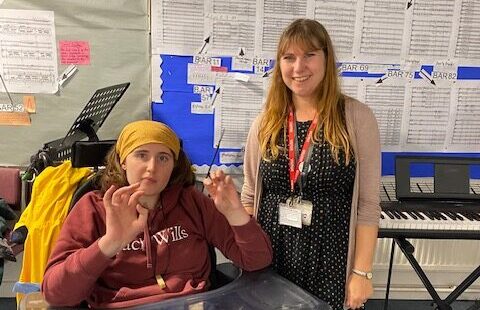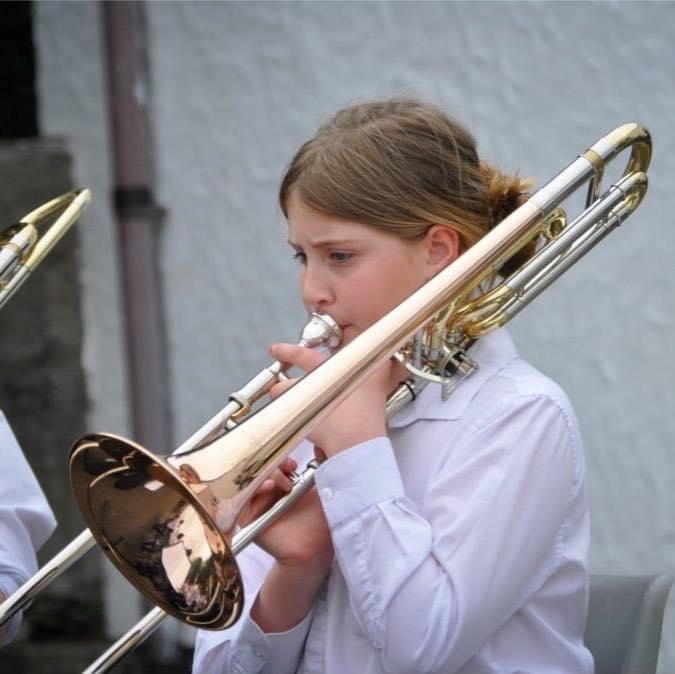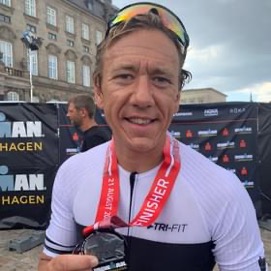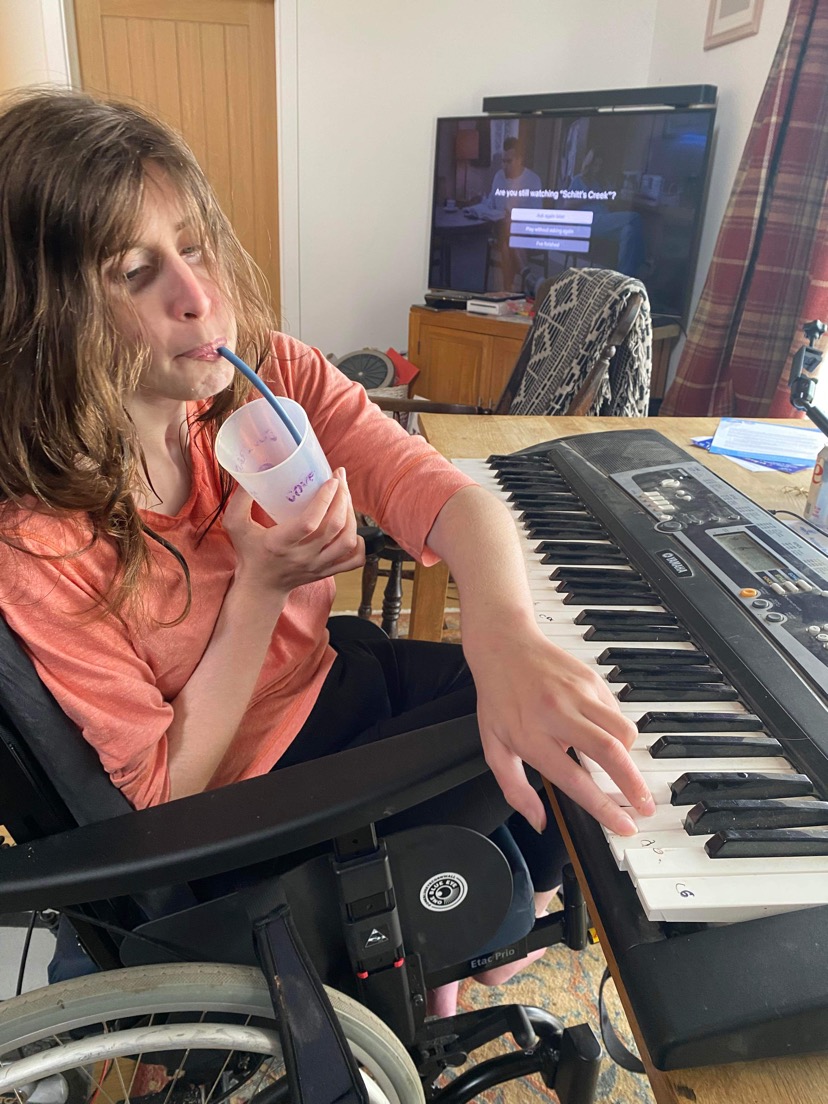Music Therapy and all that Jazz

Helen Martin is mum to Holly, 18, who suffered a brain injury following a riding accident. This week, Helen shares the story of how much music therapy from Cornwall Music Service Trust has helped throughout her recovery.
Before Holly’s accident, which left her with a severe Traumatic Brain Injury (TBI) Holly spent her time either swimming, riding or singing! Music was a real passion and a huge part of her life. She played the piano in primary school and the trombone in St Keverne Band but singing was where she shone. She never really stopped. Even riding or swimming there was always a tune in her head.

Holly had what they call global hypoxia which is where her brain did not get enough oxygen after her fall. That means that whilst there are areas that are more damaged, every part of her brain was affected in some way. It left her ‘relearning’ how to do everything. She is currently a wheelchair user and communication is a daily challenge.
We are learning all about neuroplasticity during her recovery, which is where the brain effectively rewires itself. It learns new ways to do things and finds ways to achieve old skills. So what’s all that got to do with Music Therapy? Music is a magical thing. It’s a real brain workout! Just think about all the things it can make you do! It can evoke every emotion, from sad to happy, anger to joy and everything in between. It can help you to sleep or wake up, it can make you move and dance or relax at the end of a hard day. The power is immense and for most of us we just think we are singing along to the radio without giving it a second thought. It makes you visit every part of your brain!
‘Music therapy is often used to aid improvement in multiple areas of brain function deficit and to improve quality of life, as well as facilitating physical healing. It is an adaptable therapeutic approach that relies not only on musical intervention but also on the integral relationship between patient and therapist.’ Quote from brain injury charity Headway Music therapy after brain injury | Headway
Holly first accessed music therapy in Bristol Childrens Hospital with the lovely Karen. Karen worked closely with Holly’s OT (occupational therapy) and SaLT (Speech and Language Therapy). They used music and instruments to encourage movements to press buttons, pick at strings, tap to a beat etc and wind instruments to encourage big breaths. It was a very interactive way to encourage neuroplasticity to take place.
Karen suggested she put a referral into Cornwall Music Service Trust to continue Music Therapy at home. The head of CMST is Gareth Churcher, Gareth used to teach Holly Trombone and was a conductor at St Keverne Band! He decided to go one step (or actually a gazillion steps) further to support Holly by doing an Iron Man in Hollys name to raise money to pay for this service! Over a year on and we are still benefiting from that hugely generous act.

We met Carine last summer (2022). She specialises in Neuro Music Therapy so she was just the right person we were looking for. She came to our house to meet with Holly and her home team of therapists. It was important for her to meet them because she can use their goals to help guide how she would like to lead the session. From memory it was to encourage more left-arm movement, crossing-the-body movement, breath control and sounds and ways to encourage independence in movement.
Carine has been Holly’s music therapist ever since. Holly’s session happens weekly in college time. Carine brings a wide range of instruments and uses a host of techniques to help Holly. They always start and end with the same ‘hello’ and ‘goodbye’ song and then move on to other activities. Holly loves playing scales on the piano, this in itself is a huge thing because there was a time she didn’t have the strength to push a button. She can now copy rhythms back and the start of simple melodies. She can use both hands at once! Her breath control means she can make a noise from a recorder or harmonica. She has really struggled with this in the past, the hope is this will help her coordinate the stronger breath with making a voiced sound to, one day, help with speech. In the meantime it has helped to make her breathing generally stronger and more controlled. Neuro fatigue often got in the way and when Holly was working hard she would just fall asleep but her stamina has improved so now she can participate in a whole session!

Holly’s communication is improving but is still limited. It must be hugely frustrating for her. A big part of the session is just the chance to play an instrument. Carine gives Holly time to bash out her frustrations or tinkle away her annoyances. It’s very difficult to know how to support Holly emotionally. A hug and the right words go a long way but she can’t scream and shout about how unfair life is. She can, though, take that out on a poor, unsuspecting keyboard!
Music therapy encompasses physio, SaLT, OT and psychology in a way that is inspiring and personal to Holly. I see it as an essential part of her ongoing rehabilitation and I’m so grateful to everyone who has supported us to give Holly the access she needs to this wonderful service.
Music will continue to be a big part of Holly’s life and recovery. The benefits are just too big to ignore! Carine has been and will be for a while yet a big part of Team Hollypop.
“Where words fail, music speaks.” — Hans Christian Anderson 1805-1875
For more information on Music Therapy in Cornwall please visit Cornwall Music Service Trust (cmst.co.uk)
